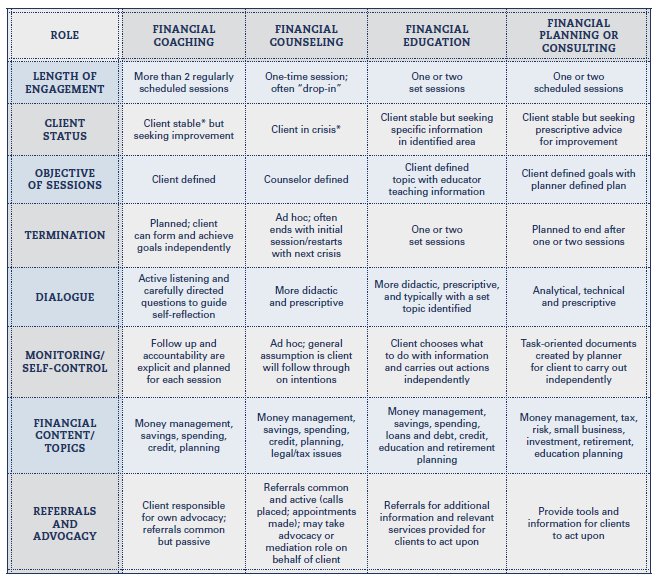
What is a Financial Advisor? A financial advisor is a professional who provides clients with financial services. They must be licensed and have received specific training. This article examines the qualifications and experience of financial advisors, as well as fees and the benefits they can offer. Learn how robo-advice works. This article also clarifies the differences between these two types. So, how do you choose the right one?
Qualifications
Financial advisers must be patient and sensitive to the needs of diverse clients. It is important to communicate well and use analytical skills to analyze data and decide between the best and worst options. Complex financial issues will be understood and you must be comfortable with technical jargon and numbers. You will also need to show empathy and compassion in order to build trust between clients.
Experience
To become a financial advisor, you will need a degree in business, finance, or law. Financial advisors usually spend one year working as an assistant to a more experienced financial adviser after they have graduated. Financial advisers can also take part in seminars and workshops to increase their experience and help them attract more clients. This type of professional work requires advanced computer skills, including the use of spreadsheet software. However, experience is what makes a financial advisor the best.

Fees
While fees for financial advisers vary, there are two main categories. The first is fee-only and involves a fixed annual fee. The other charges a flat rate for each service. The flat-fee fee financial advisor could charge $2,000 for a comprehensive plan. Some advisors do not have the license to sell investments. Because of this, their fees can be completely independent from their services. But they may still charge a higher fee than a fee-only advisor.
Robo-advice
Although consumers are uncertain about roboadvising, many firms welcome the opportunity to legalize it. The regulatory authorities are uniquely placed to support and shape the emerging financial services sector. While there are a few challenges associated with robo-advice, they must recognize that the benefits far outweigh the costs. Let's take a look at the main concerns.
Work for estate agencies
Most people think that financial advisers are only involved in real estate, but this is not always the case. Many real estate agencies employ financial advisors. These professionals are there to help property owners maximize their investment. These professionals keep an eye on market trends, technologies and other factors. They are not real estate agents but can assist clients in managing their portfolios and developing strategies to create income-producing assets.
Specialist pension consultancies
Clients often have questions when looking for the best pension consulting firm. While mergers have shaken the market, it has also seen the rise of boutiques. Boutiques are different from large consultancies in that they don't specialize in one industry but rather focus on one. HamishWilson is an example of a full-service consulting agency that focuses on UK-sized corporate schemes. Similarly, Atkin & Co is a full-service approach for smaller clients.

Law firms
You might be familiar with the role that a law practice plays in the financial lives and decisions of a couple. You may not be aware of what a financial adviser does. The role of a financial adviser is to help you navigate the complicated financial landscape during a divorce. It is important to know what a financial planner does and why. The following are important points to remember when you hire a financial planner:
FAQ
What age should I begin wealth management?
The best time to start Wealth Management is when you are young enough to enjoy the fruits of your labor but not too young to have lost touch with reality.
The sooner that you start investing, you'll be able to make more money over the course your entire life.
If you are thinking of having children, it may be a good idea to start early.
Waiting until later in life can lead to you living off savings for the remainder of your life.
Why is it important to manage wealth?
First, you must take control over your money. Understanding how much you have and what it costs is key to financial freedom.
It is also important to determine if you are adequately saving for retirement, paying off your debts, or building an emergency fund.
You could end up spending all of your savings on unexpected expenses like car repairs and medical bills.
How Does Wealth Management Work?
Wealth Management is where you work with someone who will help you set goals and allocate resources to track your progress towards achieving them.
Wealth managers can help you reach your goals and plan for the future so that you are not caught off guard by unanticipated events.
They can also be a way to avoid costly mistakes.
How to Select an Investment Advisor
It is very similar to choosing a financial advisor. Consider experience and fees.
Experience refers to the number of years the advisor has been working in the industry.
Fees refer to the costs of the service. These fees should be compared with the potential returns.
It is essential to find an advisor who will listen and tailor a package for your unique situation.
Who Should Use A Wealth Manager?
Anyone looking to build wealth should be able to recognize the risks.
New investors might not grasp the concept of risk. Poor investment decisions could result in them losing their money.
The same goes for people who are already wealthy. They might feel like they've got enough money to last them a lifetime. But this isn't always true, and they could lose everything if they aren't careful.
Each person's personal circumstances should be considered when deciding whether to hire a wealth management company.
Is it worth having a wealth manger?
A wealth management service should help you make better decisions on how to invest your money. The service should advise you on the best investments for you. You'll be able to make informed decisions if you have this information.
But there are many things you should consider before using a wealth manager. Is the person you are considering using trustworthy? Can they react quickly if things go wrong? Can they clearly explain what they do?
Statistics
- These rates generally reside somewhere around 1% of AUM annually, though rates usually drop as you invest more with the firm. (yahoo.com)
- As of 2020, it is estimated that the wealth management industry had an AUM of upwards of $112 trillion globally. (investopedia.com)
- According to a 2017 study, the average rate of return for real estate over a roughly 150-year period was around eight percent. (fortunebuilders.com)
- If you are working with a private firm owned by an advisor, any advisory fees (generally around 1%) would go to the advisor. (nerdwallet.com)
External Links
How To
How do you become a Wealth Advisor
If you want to build your own career in the field of investing and financial services, then you should think about becoming a wealth advisor. This job has many potential opportunities and requires many skills. These qualities are necessary to get a job. Wealth advisers are responsible for providing advice to those who invest in money and make decisions on the basis of this advice.
Before you can start working as wealth adviser, it is important to choose the right training course. The course should cover topics such as personal finance and tax law. It also need to include legal aspects of investing management. Once you've completed the course successfully, your license can be applied to become a wealth advisor.
Here are some suggestions on how you can become a wealth manager:
-
First, let's talk about what a wealth advisor is.
-
You should learn all the laws concerning the securities market.
-
You should study the basics of accounting and taxes.
-
After completing your education, you will need to pass exams and take practice test.
-
Finally, you will need to register on the official site of the state where your residence is located.
-
Apply for a licence to work.
-
Show your business card to clients.
-
Start working!
Wealth advisors are typically paid between $40k-60k annually.
The size and geographic location of the firm affects the salary. You should choose the right firm for you based on your experience and qualifications if you are looking to increase your income.
In conclusion, wealth advisors are an important part of our economy. Everybody should know their rights and responsibilities. They should also know how to protect themselves against fraud and other illegal activities.